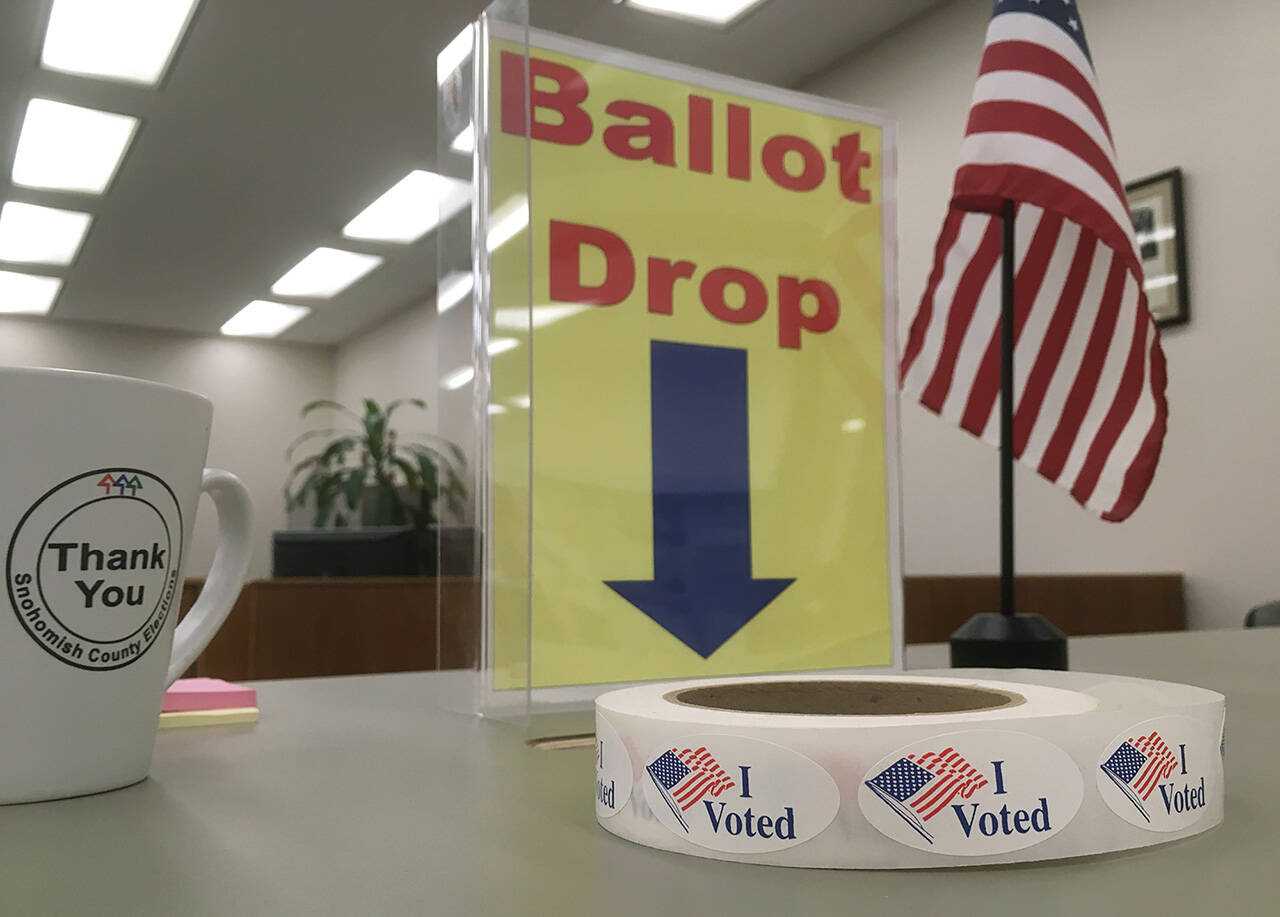By The Herald Editorial Board
What if — like paying taxes and responding to a summons for jury duty — everyone eligible to vote was required to vote?
What if voting was — more than a right — a requirement of citizenship?
That’s the thought behind legislation in the state Senate that would require “universal civic voting.” Senate Bill 5209 would require that starting with elections in 2026, all state residents eligible to vote would be required to register to vote and then return a ballot for each primary and general election. There would be no fine or other penalty for not voting, and citizens could opt out by either filing for a waiver from voting without having to state a reason for doing so, or by simply submitting a blank ballot.
Sponsored by state Sen. Sam Hunt, D-Olympia, the proposal for universal civic voting is among suggestions for improving elections in the book, “100% Democracy: The Case for Universal Voting,” by Miles Rapoport and E.J. Dionne, a Washington Post columnist and political science professor.
It’s not that Washington state hasn’t made impressive strides in recent years to make voting more accessible and convenient and to improve voter turnout in elections, said Rapoport, formerly the secretary of state for Connecticut, at a Senate elections committee hearing on Jan. 31.
Voter participation in Washington state for the 2022 election — with 63.8 percent of registered voters and 54 percent of those eligible to vote returning ballots — was tied for eighth for turnout among the 50 states, he said.
“I also want to commend the state of Washington, because I looked at the laws that you currently have on the books from the point of view of what is an expansive and inclusive democracy, and the things that the state has put in place for mail-in voting, for same-day registration, pre-registration of 16-year-olds, and for fair restoration of voting rights for people who have been incarcerated,” Rapoport said. “Across the board it’s a great and innovative record.”
It has “moved the needle” in terms of turnout, he said, “but it’s nothing to write home about.”
Looking more closely at turnout, considering the changes in law in the state, voter participation has generally improved, reaching a recent record high of 84 percent for the 2020 general election. But the gains for years without a presidential election and especially for odd-year elections that focus primarily on local city, county and other races, have seen less impressive improvements. Turnout was 39.4 percent for the 2021 general election, up from 37 percent in 2017, but down from 45 percent in 2019.
Universal civic voting, Rapoport said, could immediately and dramatically increase voter turnout to 90 percent or more; would ensure that elections better reflect the state’s diverse communities; and help drive the conversation and education for broader civic participation.
As well, it could also reduce the toxic political polarization that is common throughout the country, he said.
“Right now elections are run by turning out your own base and possibly discouraging the base of the other party or the other candidate,” he told the elections committee. “But if you know as a candidate that everyone is listening, that everyone is going to cast a vote, then you have to appeal to everybody. It forces people, it forces parties and candidates to talk about the issues in a way that persuades people, as opposed to raging to engage your own base.”
In promoting universal civic voting, Rapoport and others describe outcomes that are appealing and have been long-sought in the state through recent election changes, including many of the remedies that he and Dionne outline in their book.
But the best outcome for the Senate bill this session would be for it to encourage a broader conversation among the public about voting and elections. Discussion of universal civic voting in Rapoport’s own state of Connecticut have been ongoing for a few years without passage of legislation.
A major conundrum: It’s not hard to imagine why the legislation would avoid imposing a penalty for failing to register to vote or submit a ballot. Levying too high a fine — or any penalty as stringent — for not voting strays uncomfortably far from the notions of participatory democracy that the legislation is aiming for. But without a penalty, it’s difficult to see how anyone who doesn’t regularly vote would bother with what would still be seen as a voluntary chore and not a duty. Even a fair penalty might not be enough to prompt people to vote.
Responding to a jury summons is mandatory, and failing to appear for jury duty is a misdemeanor under state law; yet courts in recent months have sometimes had difficulty in seating juries because of low rates of response to summons.
Supporters point to successful universal voting laws in Australia and more than 20 other countries. Australia, by the way, imposes a fine of about $20 (U.S.), and achieves turnout of greater than 90 percent. That’s reason enough to continue the conversation.
There remain yet other options for increasing voter registration and election turnout, even in Washington state. In recent years, legislation was proposed that would move local elections that now fall in odd years to even years, when state and national races are on the ballot. That proposal has its own potential drawbacks, including lengthy ballots that might try voters’ patience; but the idea offers promise in ensuring that more voters make their choices known in those elections.
Amid the uncertainties about the proposal, universal civic voting may not be ready for Washington state, but because of the outcomes it promises in voter participation, education and satisfaction in elections, Washington state should be ready to discuss it further.
Talk to us
> Give us your news tips.
> Send us a letter to the editor.
> More Herald contact information.

























